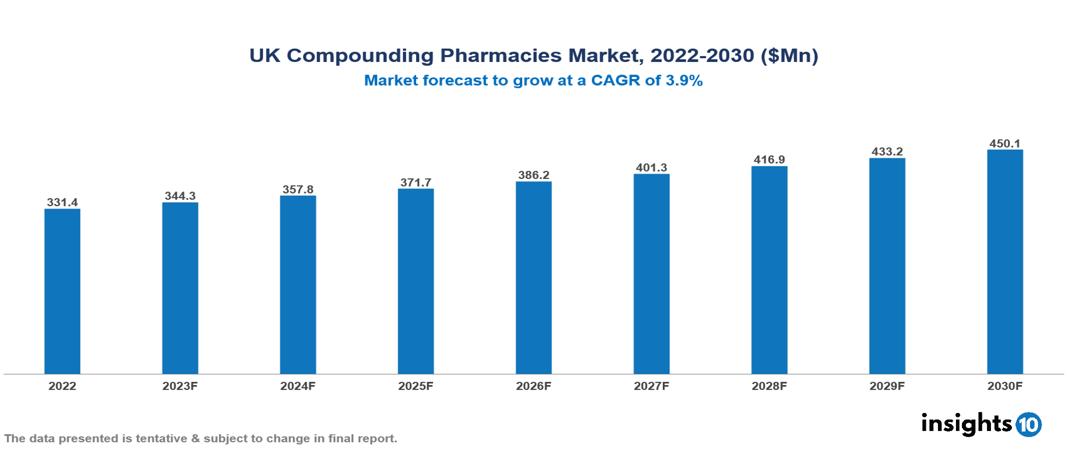The landscape of pharmacies in the UK is traditionally dominated by retail establishments dispensing mass-produced medications. However, a fascinating niche within this sector, known as compounding pharmacies, is steadily gaining traction. But what exactly are compounding pharmacies, and how do they fit into the UK healthcare ecosystem? This inquiry beckons a deeper investigation.
Compounding pharmacies, in essence, are special pharmacies that create personalized medications tailored to meet the unique needs of individual patients. Unlike regular pharmacies that offer off-the-shelf drugs, compounding pharmacies prepare specific dosages, forms, and ingredients based on the requirements prescribed by healthcare professionals. Think of it as bespoke tailoring—but for medicine. This flexibility not only allows for the manipulation of dosages but also caters to specific allergies, intolerances, or even preferences regarding flavor and administration routes.
Historically, compounding was a common practice in pharmacy. In fact, it was—before the advent of mass-production—a significant part of the pharmacists’ role. However, with the explosion of pharmaceutical companies and their extensive product lines, the traditional art of compounding took a backseat. Yet, as healthcare expands in complexity and individualization becomes paramount, the resurgence of compounding pharmacies is stirring curiosity among both healthcare providers and patients alike.
So, do compounding pharmacies exist in the UK? The answer is a resounding yes. Across the country, there are specialized pharmacies dedicated to this meticulous craft. While they’re not as prevalent as retail pharmacies, their presence is becoming more apparent each day. These establishments are meticulously regulated by the General Pharmaceutical Council (GPhC) to ensure that the services they offer are not only safe but meet the highest standards of quality.
Patients facing unique health challenges frequently seek out the expertise found within compounding pharmacies. For example, consider the case of a child with an allergy to a specific dye used in traditional medications. A compounding pharmacy can create a suitable alternative that maintains therapeutic efficacy without the undesirable additives. Likewise, elderly patients who may struggle with swallowing pills can find compounded liquid formulations tailored to their dosage requirements. These scenarios elucidate the invaluable role that compounding pharmacies can play in enhancing patient care.
Moreover, compounding pharmacies can also cater to the realm of veterinary medicine. Yes, you read that right—compounding is not just for human patients! Many animal companions require medications that are not readily available in suitable forms. By working closely with veterinarians, compounding pharmacies can create formulations catered to the specific needs of animals, whether it’s adjusting dosages or providing palatable options for fussy pets.
However, the increasing awareness and interest in compounding pharmacies are not without challenges. The regulations that govern their operations are stringent, primarily because compounding poses inherent risks that need vigilant oversight. For example, there’s the potential for contamination during the compounding process. Consequently, stringent protocols are established to ensure safety. Pharmacies must operate in sterile environments and follow strict quality assurance practices. This commitment to quality fortifies the trust patients and healthcare providers place in these essential establishments.
Additionally, there is an ongoing discourse regarding the distinction between legitimate compounding services and entities that might mislabel themselves as compounding pharmacies. As the market develops, educating the public becomes indispensable. Patients need to be informed and discerning about where they source their compounded medications. This is where engaging healthcare professionals and fostering open discussions become crucial.
As we look to the future, the prospects for compounding pharmacies in the UK appear promising. The shifting dynamics within patient needs, coupled with the healthcare sector’s movement towards personalized medicine, suggests a burgeoning landscape for these entities. More healthcare practitioners are recognizing the value of collaboration with compounding pharmacists, and as they do, the lines between conventional pharmacies and compounding specialists are becoming increasingly blurred.
Additionally, technological advances are enhancing the ways compounding pharmacies operate. Innovations in formulation technologies, quality control, and even telepharmacy are paving the way for more accessible compounding services. Patients can now receive consultations and prescriptions remotely, making the process smoother and more efficient.
In conclusion, compounding pharmacies are indeed part of the UK’s healthcare tapestry. They represent a nuanced intersection between individualized treatment and pharmaceutical science. As awareness grows about the personal and sometimes lifesaving options that these pharmacies provide, it’s clear that their role will only expand in importance. For patients navigating the maze of healthcare, compounding pharmacies offer a glimmer of hope—a reminder that medicine can indeed be tailored, personalized, and most importantly, compassionate.
